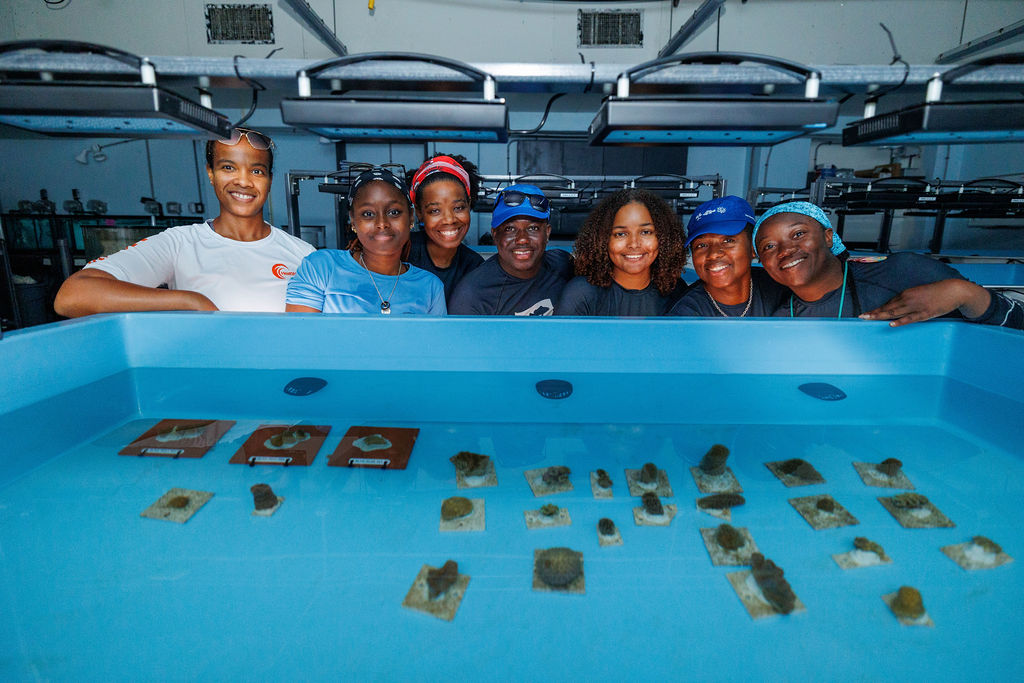NOW OPEN
We don’t know about you, but we are beyond excited because The Bahamas first-ever coral gene bank is officially open at Atlantis! This gene bank is the anchor of an aggressive national conservation initiative to urgently save our reefs from disease and climate change.
The best part? The facility was partially funded by YOU, our guests. Part of the proceeds from every Dolphin Cay and Marine Adventure animal interaction, and Music Making Waves concerts at the resort funds the Atlantis Blue Project Foundation to support ocean conservation projects just like this.
Watch the VIDEO TOUR here
A coral gene bank is a biosecure research facility that stores the DNA of hundreds of endangered coral species. That’s important, because there’s a very real chance one or more species could soon become extinct, either from warming oceans or a deadly disease called Stony Coral Tissue Loss Disease that spreads like wildfire. The coral is collected from government approved offshore reefs and transported to the special lab facility at Atlantis.
In addition to storing DNA, the gene bank also houses coral fragments in pristine aquariums and uses scientific innovations to accelerate their growth. For instance, microfragmentation breaks down corals into smaller fragments, which triggers a robust healing response and rapid tissue growth. The techniques are used to make corals stronger and more resilient to threats—and may reverse some of the devastation experts are seeing now.
The coral gene bank wouldn’t be possible without the power of innovative partnerships: The Government of The Bahamas, the Department of Marine Resources, the Department of Environmental Planning and Protection, the Perry Institute for Marine Science (PIMS), the University of The Bahamas, and The Bahamas Agriculture and Marine Resources. Together, this extraordinary collaboration turned
a bold idea into a working, world-class reality.
Stay tuned for more updates on The Bahamas Coral Gene Bank at Atlantis Paradise Island and discover how our collaborative efforts are contributing to a more sustainable future.
